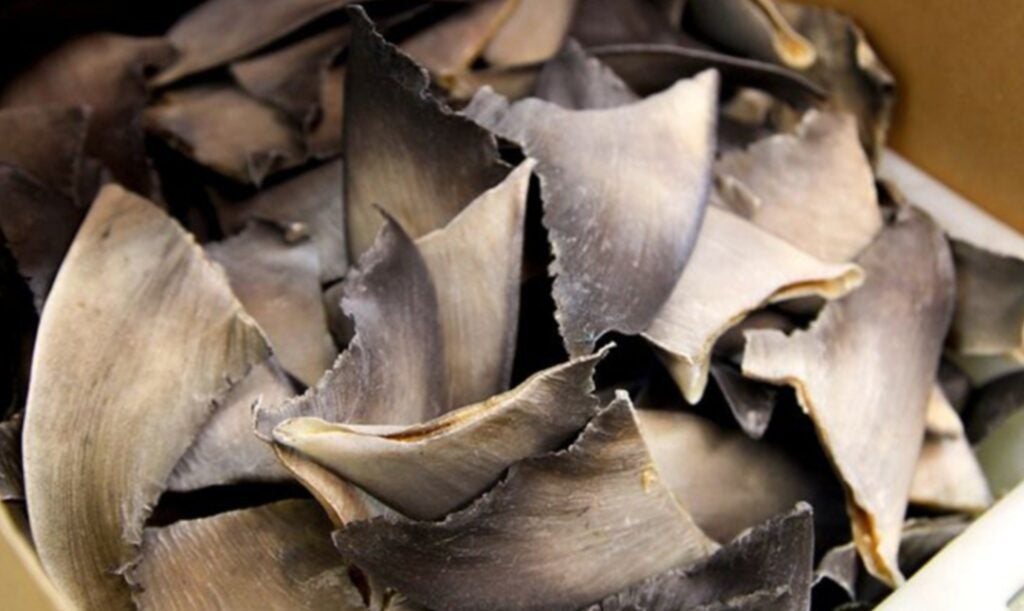Mozambique swells the ranks of law enforcement teams fighting wildlife crime
Director General reveals training program after massive confiscation of illegally trafficked shark fin at airport

Your support helps us to tell the story
From reproductive rights to climate change to Big Tech, The Independent is on the ground when the story is developing. Whether it's investigating the financials of Elon Musk's pro-Trump PAC or producing our latest documentary, 'The A Word', which shines a light on the American women fighting for reproductive rights, we know how important it is to parse out the facts from the messaging.
At such a critical moment in US history, we need reporters on the ground. Your donation allows us to keep sending journalists to speak to both sides of the story.
The Independent is trusted by Americans across the entire political spectrum. And unlike many other quality news outlets, we choose not to lock Americans out of our reporting and analysis with paywalls. We believe quality journalism should be available to everyone, paid for by those who can afford it.
Your support makes all the difference.By Omardine Omar for Integrity Magazine
Two hundred kilogrammes of shark fin were seized at Maputo International Airport two weeks ago, but the case is still under investigation and the Director general of Mozambique’s National Administration for Conservation Areas (ANAC), Celmira da Silva said he could not provide further details on the subject.
Integrity Magazine tried to question who owned the cargo as well as its origin and final destination, but without success.
As part of reinforcing the inspection of environmental crimes, da Silva said that more than 1,700 forest guards, assigned to different conservation areas spread across the country, will be integrated into the State Apparatus, starting next year, with a view to reinforcing the ability to monitor biodiversity.
The measure aims to respond efficiently to the new challenge of poaching, by training the supervisory body of agents linked to the conservation and protection of natural resources, mainly for species protected by law, such as the dugong and sea turtles that are on the verge of extinction.
As da Silva indicated, within the scope of these actions, ANAC, in coordination with the African Parks Network and other partners, promoted basic training for 123 rangers, training and retraining of another 175. 90 forest guards were also trained in combating crimes against flora and fauna, including illegal trafficking.
36 inspectors and agents of the Police for the Protection of Natural Resources and Environment and Customs of Mozambique were trained in the collection of evidence at the crime scene; 18 agents on matters of investigation of environmental crimes, including customs agents.
District-level prosecutors were also trained in the use of the Criminal Investigation Manual as part of the training cycle for those involved in combating environmental crimes.
Celmira da Silva explained that the judiciary has also been involved in training, with a view to improving response capacity in the fight against poaching and illegal trade in wildlife products, such as, for example, ivory and rhinoceros horns.
With regard to poaching, the director general made it known that in 2022 385 cases were registered that resulted in the arrest of 839 people in connection with crimes against wildlife.
Of the 385 cases registered, 41 were tried and 13 convicted with sentences ranging from four to 30 years in prison.
During this period, 158 firearms were also seized, 348 poachers' camps were destroyed and 11,770 traps used by illegal hunters in their raids were deactivated.
According to the minister, the success of operations to combat environmental crimes was only achieved thanks to the involvement of stakeholders.
“In general, poaching trends have reduced thanks to various measures taken by ANAC in collaboration with national and international organisations and cooperation partners,” added da Silva.
This article is reproduced here as part of the African Conservation Journalism Programme, funded in Angola, Botswana, Mozambique, and Zimbabwe by USAID’s VukaNow: Activity. Implemented by the international conservation organization Space for Giants, it aims to expand the reach of conservation and environmental journalism in Africa, and bring more African voices into the international conservation debate. Written articles from the Mozambican and Angolan cohorts are translated from Portuguese. Broadcast stories remain in the original language.
Read the original story here:
Join our commenting forum
Join thought-provoking conversations, follow other Independent readers and see their replies
Comments